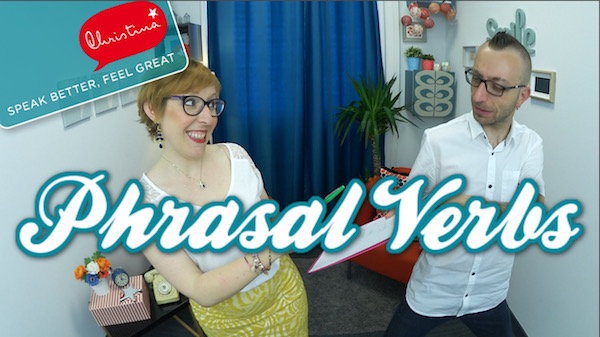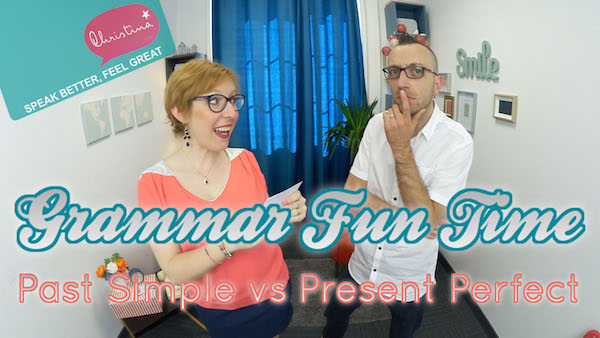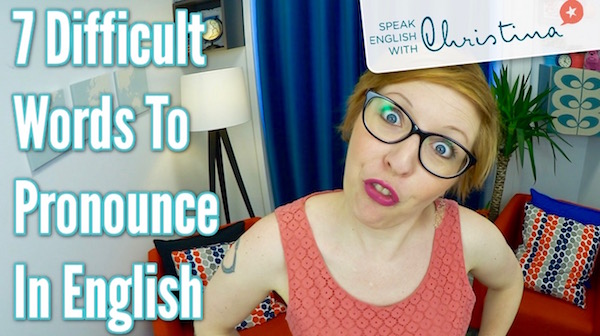
Ah, les phrasal verbs en anglais…
Ça fait 12 ans que je donne des cours d’anglais à des Français et s’il y a une chose qui embête tout le monde, ce sont des “phrasal verbs”.
C’est comme une maladie, ça n’épargne personne. Si tu bricoles quelques phrases d’anglais seulement, les phrasal verbs t’embêtent. Si tu arrives quand même à comprendre les épisodes de Game of Thrones, les phrasal verbs t’embêtent.
Tu sais, tu ces petits mots comme “figure out”, “fill in”, “show up”…
Un phrasal verb, c’est un verbe + une préposition pour faire 30,000 sens (à peu près) avec un seul verbe. Malin, non ? Non. C’est méchant.
Tu vois “turn”. Facile ! “Tourner.”
Puis “turn out”… “Tourner dehors ?” Raté.
C’est “assister à un événement”, dans le sens “A lot of people turned out for the Tour de France
last week. I guess nobody cares if they’re all doped.”
Si tu as envie de crier là maintenant, je te conseille de fermer la porte de ton bureau avant…
On pense que c’est le verbe qui est le plus important. Mais non, c’est la préposition.
Il y a “turn out”, mais aussi “turn up”, “turn down”, “turn in”, “turn around” (le préféré de Bonnie Tyler)…
Vas-y. Crie. Ça fait du bien. “Damn you, phrasal verbs!”
Imagine que le verbe, c’est un plat.
La préposition, c’est le sel. C’est tout petit, ça ne coûte pas grande chose et on le remarque à peine, sauf quand il change tout. (Comme quand je fais des lasagnes…souvent, là, on sait bien qu’il y du sel. Lots of it…)
En plus, il y souvent un mot plutôt latin qui a exactement le même sens que le phrasal verb. Tu en connais ? (Si tu n’en trouves pas, la vidéo t’en donne 😉
Alors, à quoi ça sert, les phrasal verbs ?
Ça sert à parler plus du “anglais-anglais.” (Disclaimer: Ceci n’est pas un terme technique en linguistique)
Les phrasal verbs t’éviteront de répondre “No, I think I’ll wear pants” quand ton ami américain Bobby te demande “Are you gonna dress up for the dinner?” (“Tu vas mettre des beaux vêtements?”, pas “Tu vas mettre une robe?”, qui serait une question bizarre si tu es un homme.)
Voici 5 phrasal verbs pour que tu n’as pas à vivre ça :
Now, I’d love to hear from you.
Did you know these phrasal verbs already? What others do you know?
Tu peux me dire par pigeon voyageur, mais dans les commentaires, c’est plus efficace.
Thanks a lot for showing up every Tuesday. You make it a pleasure for me to come back to work after the weekend 😉
Have a fantastic week in English,
Christina
More good stuff...
Clique l'image pour regarder l'épisode. C'est magique !








1) keep going = continue
2) fill in / out = complete
3) show up = arrive
4) go back = return
5) figure out = determine , identify
Woohoo, who’s the star of phrasal verbs? Molllllllliiiiieeeee !
Hi Christina, thank you for the video and for the tips concerning phrasal verbs.
Here are a few more :
– Pass out / pass away (I made a huge mistake a few weeks ago with those phrasal verbs)
– Open up
– Clean up
– Mix up
– Sign up / Sign in
– Come off
– Come in
– Check out
Have a nice week !
Very nice list, Blandine! And I’m glad you found the video helpful! And for the confusion between pass out and pass away, I’m sure you won’t forget those two now 😉 Proof that mistakes are great teachers!
Just for fun, here are some sentences with your phrasal verbs:
I need to clean up the apartment, but instead I’m watching The Simpsons (c’est vrai en plus…)
It’s easy to get some phrasal verbs mixed up…
After summer vacation, are you going to sign up for any clubs?
This weekend, I’m going to check out the temporary exhibit at the Grenoble art museum (I hope to, anyway!)
Ehhh.Christina i was missing you.thank you about phrasal verbs.Ah les prepositions.c’esi pas evident car pour moi j’allais traduire votre exemple (KEEP GOING) en francais(GARDER LA CADENCE) .Mais merci quand meme pour la lecon.J’allais vous demander surtout les phrasal verbs avec le verbe TO LOOK+TO+AT+FOR+AFTER+FORWARD TO+IN. HUMM les prepositions ca nous a toujours creee des problemes et ca continue.
THANK YOU AGAIN AND HAVE A NICE WEEK. SOONLY
Glad to see you’re back, Babou! I’m sure you’ve been very busy lately! Oui, les phrasal verbs sont difficiles pour tout le monde, donc je pense que je vais faire des vidéos sur le sujet regulièrement. Si tu apprends quelques uns à la fois, c’est plus facile. Il ne faut surtout pas essayer d’en apprendre beaucoup d’un coup. C’est juste bon pour se brouiller !
J’aime beaucoup ton idée de sujet avec “look” et les prépositions! Je l’ai ajouté à mon calendrier! Thanks 🙂
Hello Christina,
Great article and video! I take a lot of these for granted. There have been many times that I have had to rethink how I was going to convey a message to my French friends because it contained a phrasal verb.
In your turn out example, I would have said “I guess nobody cares if they’re all doped up.” (complètement dopés, quoi).
Here are a couple that come to mind:
Heads up! – Attention!
The crowd shouted “Heads up!” when the foul ball went into the stands.
It’s on! – 1) l’annonce de la reprise d’une émission après une coupure publicitaire
I shouted “it’s on” to Claudine because she was out of the room when the commercials were over. (Histoire vraie. Cela m’est arrive en France. Au lieu de dire “ça recommence!” en français j’avais crié “It’s on!” en anglais.)
Thank you!
Rob
Hi Robert,
Sorry, I didn’t see that you’d left a comment here! Apologies for getting back to you so late! Yes, I think we do take phrasal verbs for granted because they’re just so natural to us. For people learning English, not so much!
And you’re right, we would probably say “They’re all doped up”, and then for a French person (or other non-native English speaker), the question might be, “why can’t you just say ‘doped’?” You can. “But what’s the difference?” There’s not one. Argh!! Except maybe just a difference that in spoken language, we tend to add these particles everywhere, just for fun I guess. Like with “cut up a carrot”, “climb up a tree”, etc.
And I can totally relate to your story about spontaneously blurting out things in English. Yep. Been there done that.
All the best!
Hey Christina, how are you doing?
Thanks for the videos?
Let me ask 2 questions:
– regarding phrasas verbs, I’m always wondering where to place the complement, like in “pick them up”, “pick the children up” or “pick up the children”. Is there a rule for that?
– have you determined levels? I’ve noticed that in one video you speak more slowly. Is there any recommendation for people who have already a good understanding and want to improve the way they speak?
Thank you very much in advance!
Kind Regards, Valerie